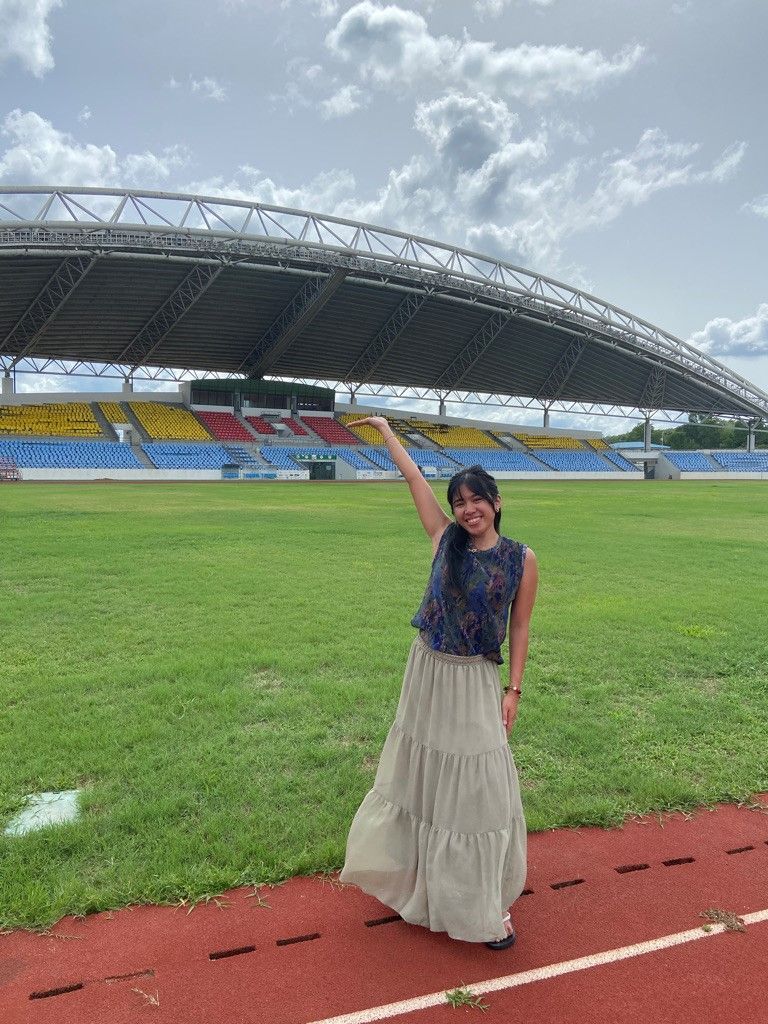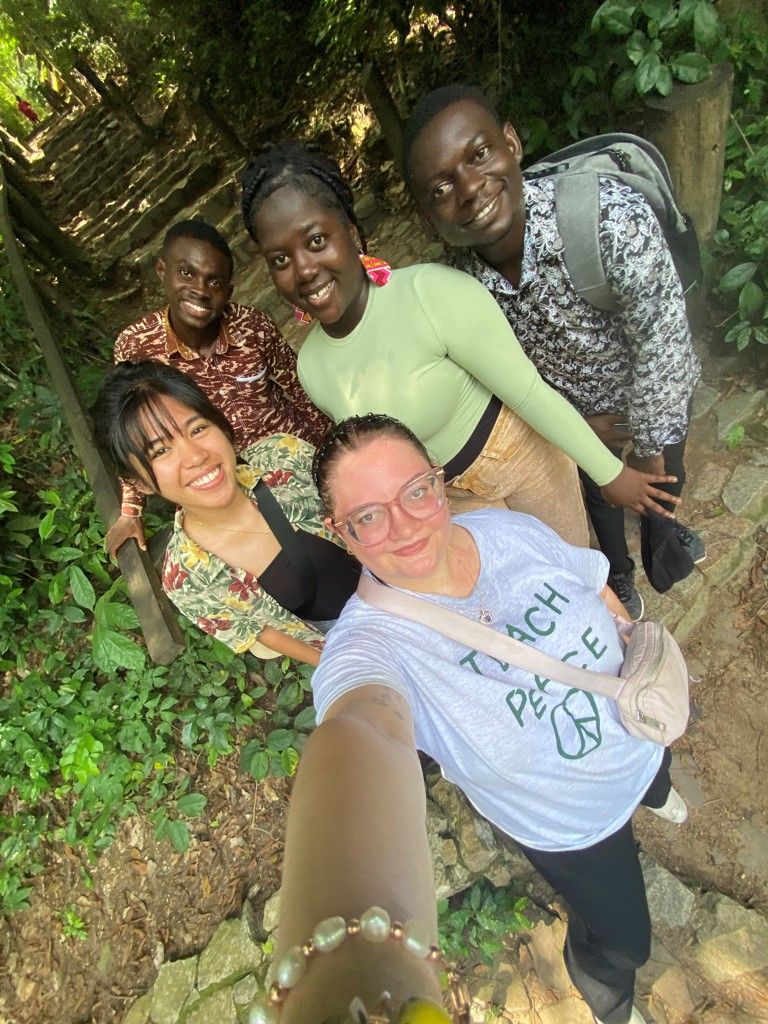
Students from UCC Ghana came to the United States first where we were able to engage in cross-cultural learning. We visited the capital of Michigan, schools from East Lansing to Detroit, the Ziibiwing Center of Anishinabe Culture and Lifeways, the Haslett Board of Administration, and Sleeping Bear Dunes. We also took the UCC students for their first time ice skating, and more.
MSU and UCC students then traveled to Ghana to learn about their pedagogy. While there we visited Cape Coast and Elmina Castle, the Assin Manso Ancestral Slave River Site, and primary and secondary schools. We met with regional and district administration, the provost, vice-chancellor, and more. Through continued community and conversations, I learned how American and Ghanaian schools are different and the same and what I can carry into my classroom.
During our time together, I learned a lot about Ghanaian cultures and 
This experience enhanced my academic pursuits by helping me learn how to be culturally responsive. By being culturally responsive I can introduce culture in a respectful and authentic way that reflects students in my classroom. For example, I learned about Ghanaian languages, foods, histories, clothes, traditions, etc. that I can now share with my students which could be especially welcoming if I have a Ghanaian student. I also bought a Ghanian flag which I will hang in my classroom. This knowledge also helps me find veritable resources of Ghana for students to learn from.
I saw teaching practices that I want to incorporate into my teaching practices. For example, their form of social studies for lower elementary students is called Our People Our World (OWOP). In my classroom, I want to change social studies to be OWOP because of its united wording and history in the U.S. is usually framed as separate. In addition, I want to embody my observations of how Ghanaian teachers engaged students' participation through song, dance, and repetition. There was so much joy from the teachers and students alike. It provides more human interactions between teachers and students and is a collaborative activity.
On a personal level this program gave me the opportunity to converse with panels of students and teachers. I was able to have conversations that not only deepened my passion for teaching but gave me the confidence that we all are all going to be changemakers. The students we meet are impacted by us as role models and I got a deeper understanding of what kind of role model I want to be.
I learned a lot about Ghana and its people. I learned about the 
I feel as a Filipino American a lot of the things I experienced in Ghana brought me joy because they reminded me of the times I would visit the Philippines. The warm community, the food, the humidity, and the joy. This program was life-changing for me and gave me a community to learn from and with. The reciprocal exchange is special because it gives a chance for each group to experience each other’s lives. I was able to create lifelong friends in Ghana who we will continue to be in community with and share teaching practices. I was already sent a recipe book! But it is these relationships and continuous learning that have helped me dream of being a changemaker cultivating changemakers.
Name: Dea Olegario
Status: Grad student (Masters)
Major: Teaching and Curriculum
Hometown: Ypsilanti, Michigan
Program: Reeves Scholars Program in Ghana